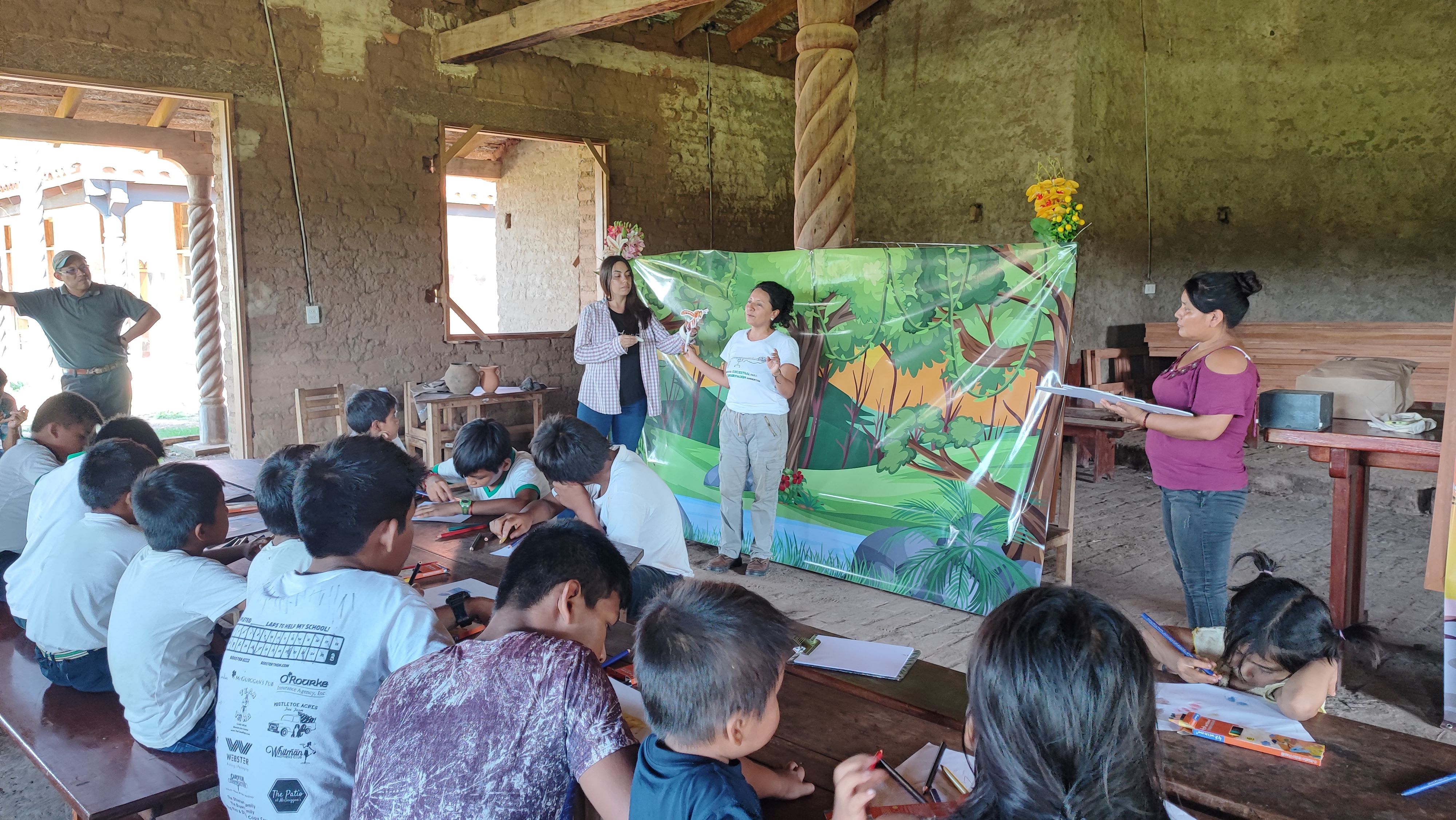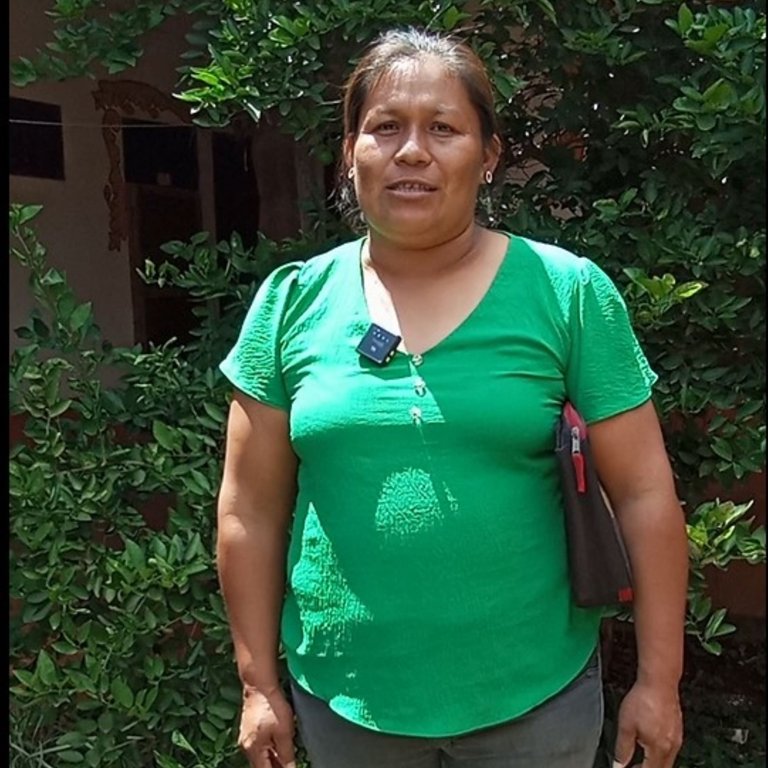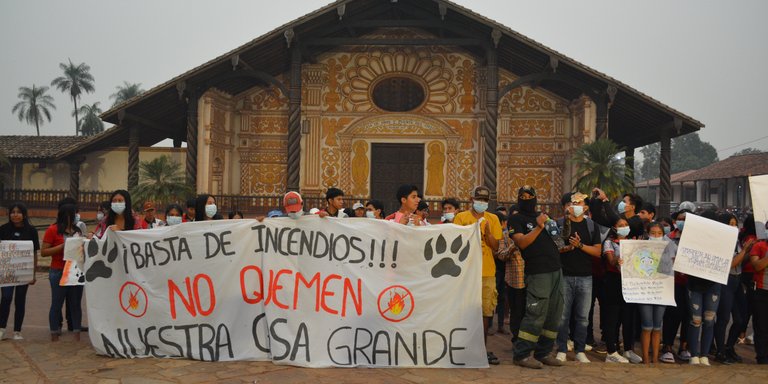
RISK Award 2025
Indigenous children and youths on the front line of emergency preparedness and climate resilience in Bolivia
Project duration: 1 July 2025 - 30 June 2026
properties.trackTitle
properties.trackSubtitle
Having successfully navigated an intensive assessment process with over 500 project proposals, ChildFund Bolivia is the winner of the RISK Award 2025.
In line with this year’s theme “Children and youths as agents of change for DRR”, the selected project addresses DRR measures targeting schools and schoolchildren of the Chiquitano Indigenous Territory, located in the Amazon lowlands of Bolivia. Over the past seven years, the project area has been repeatedly affected by devastating wildfires, resulting in school closures and home displacements, leaving children and youths especially exposed to the negative impacts of the fires.
News and reports from the project
About the project

Originated by a combination of the expanding agro-industrial frontier, intensified effects of the El Niño and El Niña phenomena and prolonged droughts in the course of climate change, the Amazon lowlands of Boliva have been severely affected by devastating wildfires in the past few years. In 2024 alone, more than 12 million hectares of forest and grasslands were destroyed. The Chiquitano dry forest, an indigenous territory in the municipality of Concepción, Santa Cruz Province, is among the hardest hit.
Schools in this region are particularly affected, as they lack emergency response capacities, access to water, safety equipment, and resources to ensure educational continuity during and after emergencies. As a result, indigenous children and youths face a disruption of their right to education, a displacement from their homes, and significant psycho-emotional distress due to the trauma caused by the fires and uncertainty about their future.
The project therefore aims to empower indigenous youths and schoolchildren from the Chiquitano Nation to become climate advocates and agents of change for emergency preparedness. Focusing on eight villages within the Chiquitano indigenous territory, the goal is to transform schools into safer and more resilient spaces through disaster risk reduction and environmental education. In doing so, the project addresses the current vulnerability of schools to recurring disasters, such as wildfires, and strengthens their ability to respond to emergencies. Indigenous schoolchildren will be equipped with the knowledge and skills they need to play an active role in promoting emergency preparedness and climate resilience in their communities, resulting in a positive and long-term impact on the Chiquitano Nation.
By combining the concepts of nature-based solutions and ecosystem-based disaster risk reduction with traditional indigenous knowledge and low-cost technology, the project follows a holistic approach. It seeks to merge traditional indigenous knowledge with accessible technological innovations, empowering children and youths to confront the impacts of climate risks in a sustainable and adaptive way.

Children faced the fire, the smoke, the fear, but they have a strong spirit. We need safer schools, where they can continue learning and growing. Through the project they will become resiliencebuilders, able to endure any climate adversity.
Three impact pillars
Making Schools Safer and More Sustainable with Nature-Based Solutions
To help protect children in the Chiquitano region during emergencies, schools are being upgraded with nature-based solutions like rainwater harvesting systems. These systems—featuring tanks, taps, filters, and rain gauges—will ensure a reliable supply of clean water, even in times of crisis. This not only helps keep kids safe and healthy but also supports continued learning during and after emergencies. The project also promotes better hygiene and water use through WASH (Water, Sanitation and Hygiene) training for teachers, students, and parents. A participatory water governance model will support sustainable management. By reducing the time girls and women spend fetching water, the initiative also supports gender equality and protects them from related risks.
Preparing Students for Disasters and Teaching Environmental Care
This part of the project helps students become better prepared for natural disasters. It includes creating School Emergency Preparedness Plans (SEPP) and teaching kids how to respond to emergencies through a disaster risk reduction approach. Environmental education also plays a key role, using the “Educational Forest” method to connect children with nature and help them appreciate biodiversity. This aims to spark long-term changes in how young people care for the environment, including discouraging harmful practices like burning land. Recognizing that climate change affects mental health, the project also builds emotional resilience in children. Eight schools will be turned into hubs for climate innovation, combining indigenous wisdom with modern technology and student-led solutions to create more resilient communities.
Empowering Indigenous Youth to Defend Their Land and Future
Young people from the Chiquitano Nation are stepping up as environmental leaders. With a mix of traditional knowledge and low-cost digital tools, they’re taking action for climate justice and sustainable land use. The youth organization JUMA (Youth United for the Environment) is at the forefront of this movement. They promote environmental awareness, advocate for children's rights to a healthy environment, and push for nature-based solutions to manage indigenous territories. Using the Educational Forest approach, JUMA leads activities like school campaigns, theater, social media outreach, and community events. With experience in both activism and education, they are shaping a new generation of informed, engaged climate advocates.

.jpg/_jcr_content/renditions/original./2025%20RISK%20Award%20Bolivia%20Update%201%20(4).jpg)



